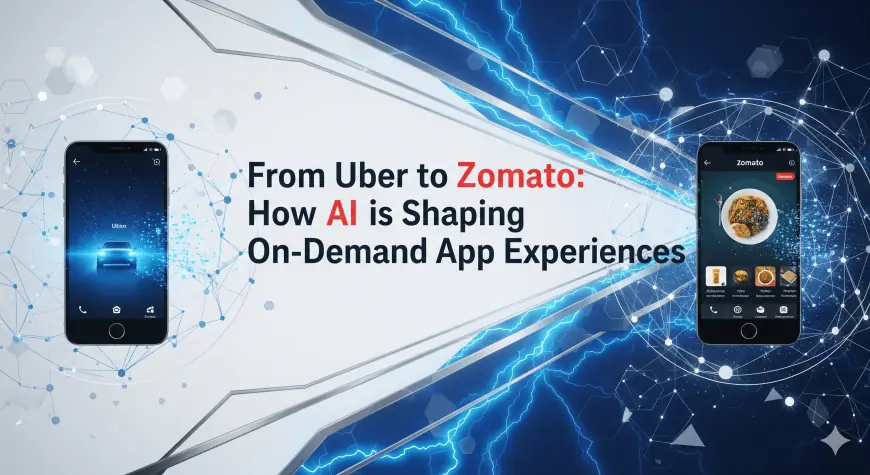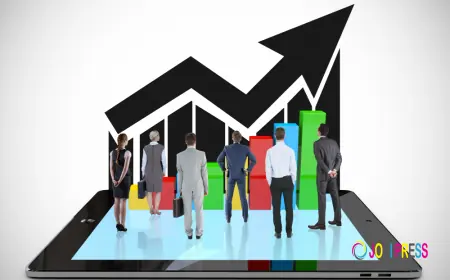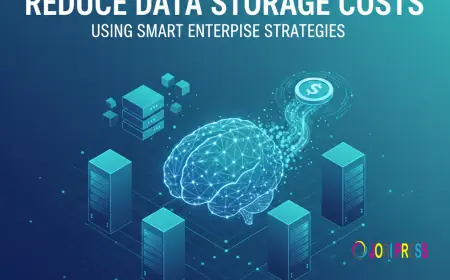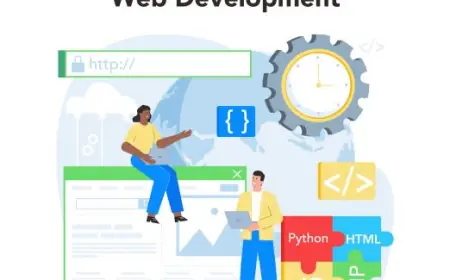From Uber to Zomato: How AI is Shaping On-Demand App Experiences
Explore how AI is transforming on demand app development with examples from Uber and Zomato. Learn how AI App Development Services drive smarter, personalized experiences.

In today’s fast-moving digital economy, on demand app development has revolutionized how people access products and services. From hailing a cab to ordering dinner, everything is just a tap—or increasingly, a voice command—away. Giants like Uber, Zomato, DoorDash, Ola, and Instacart have not only changed consumer behavior but also raised expectations for speed, personalization, and convenience.
At the heart of this transformation is Artificial Intelligence (AI). Once considered futuristic, AI is now deeply embedded in on-demand platforms, powering everything from smart recommendations to real-time delivery tracking. Businesses leveraging AI App Development Services are building smarter, faster, and more intuitive apps that can anticipate customer needs before they even type a request.
This blog explores how AI is reshaping on-demand app experiences, with real-world examples from brands like Uber and Zomato, while also looking at future trends and challenges.
The Evolution of On-Demand Apps
The first wave of on-demand apps focused on convenience. Uber disrupted the taxi industry by enabling people to book rides instantly, while Zomato changed food discovery and delivery forever.
However, as markets matured, simple access was no longer enough. Consumers wanted:
-
Personalized recommendations instead of generic listings
-
Real-time transparency instead of vague updates
-
Faster, error-free deliveries powered by smarter logistics
This shift paved the way for AI to step in as the game-changer for on demand app development.
How AI is Transforming On-Demand Apps
1. Personalized Recommendations
AI analyzes user behavior, preferences, and purchase history to deliver highly relevant suggestions.
-
Zomato uses AI to recommend restaurants based on previous orders, time of day, and trending cuisines.
-
Uber Eats leverages predictive analytics to suggest meals a customer is likely to order again.
This personalization boosts engagement and increases average order values.
2. Dynamic Pricing & Demand Forecasting
On-demand businesses thrive on balancing supply and demand.
-
Uber pioneered surge pricing, powered by AI algorithms that analyze traffic, weather, and rider demand in real time.
-
Food delivery apps like Swiggy and Zomato use AI for inventory forecasting, helping restaurants avoid shortages during peak times.
Such AI-powered pricing models improve efficiency and revenue optimization for service providers.
3. Real-Time Tracking and Smart Logistics
AI is crucial in optimizing routes, reducing wait times, and cutting operational costs.
-
Uber’s AI models predict traffic and recommend the fastest routes to drivers.
-
Zomato uses AI to allocate delivery executives based on distance, availability, and even predicted cooking time at restaurants.
This creates a seamless customer experience, where users know exactly when their order will arrive.
4. Fraud Detection and Security
On-demand apps handle massive amounts of financial transactions and personal data daily. AI strengthens security by:
-
Detecting unusual spending or login activity
-
Flagging fake reviews and fraudulent accounts
-
Enhancing user authentication through AI-driven biometrics
For instance, Uber has integrated AI facial recognition to verify driver identities, ensuring passenger safety.
5. AI Chatbots and Virtual Assistants
Customer queries often overwhelm support teams. AI-driven chatbots handle common issues instantly.
-
Zomato’s chatbot assists users in tracking orders, processing refunds, and resolving payment issues.
-
Uber’s AI assistant helps riders and drivers with trip details and troubleshooting.
This reduces costs while delivering 24/7 support.
6. Voice AI and Conversational UX
Voice technology is making interactions more human-like. Customers can simply say:
-
“Order my usual from KFC”
-
“Book me a ride to the airport at 7 AM”
AI-powered conversational UX is quickly becoming the standard for on demand app development, making apps more accessible and intuitive.
Case Studies: Uber and Zomato
Uber’s AI-Driven Experience
Uber is one of the best examples of AI transforming on-demand services:
-
ETA Predictions: AI calculates highly accurate arrival times based on real-time conditions.
-
Matching Riders & Drivers: Algorithms ensure optimal pairings to reduce wait times.
-
Safety Features: AI-powered alerts notify drivers to take breaks if fatigue is detected.
-
Uber AI Labs: Dedicated research unit focused on reinforcement learning and optimization.
Zomato’s AI-Enhanced Ecosystem
Zomato has evolved from a restaurant discovery platform into a food-tech giant powered by AI:
-
Food Recognition AI: Scans menu images and dishes to improve listing accuracy.
-
Smart Delivery Allocation: Assigns orders to the most efficient delivery partner.
-
Customer Insights: Uses AI sentiment analysis to refine recommendations and marketing.
-
Dynamic Promotions: Personalized discounts based on order history and frequency.
Both companies showcase how AI App Development Services are redefining customer engagement and operational efficiency.
Why Businesses Need AI in On-Demand Apps
The on-demand economy is growing rapidly, but competition is fierce. Here’s why businesses should adopt AI-driven apps:
-
Customer-Centric Experiences – Personalized services keep users engaged.
-
Operational Efficiency – AI reduces costs through automation and optimization.
-
Data-Driven Insights – Businesses gain predictive intelligence for decision-making.
-
Scalability – AI systems can handle millions of users without compromising quality.
-
Revenue Growth – From upselling to dynamic pricing, AI opens new monetization channels.
The Role of AI App Development Services
While AI is powerful, integrating it effectively requires technical expertise. That’s where AI App Development Services come in. A specialized partner can:
-
Build custom AI algorithms for recommendation, pricing, and personalization.
-
Ensure seamless integration with logistics, payment, and user management systems.
-
Provide data privacy and compliance with GDPR, HIPAA, or local regulations.
-
Deliver scalable infrastructure capable of supporting global on-demand platforms.
-
Continuously optimize models with real-time learning and analytics.
Partnering with the right development team ensures businesses don’t just adopt AI—they master it.
Future of AI in On-Demand Apps
The AI journey for on-demand platforms has only begun. Future innovations include:
-
Hyper-Personalization – Apps predicting user needs before they act.
-
Emotion AI – Understanding tone and sentiment in voice/text interactions.
-
Drone & Autonomous Deliveries – AI-powered logistics taking delivery speed to new heights.
-
Voice-First Super Apps – Combining multiple services into one voice-enabled ecosystem.
-
Sustainability AI – Reducing carbon footprints with eco-optimized logistics.
The future will belong to companies that adopt these innovations early.
Challenges in AI-Driven On-Demand Apps
Despite its promise, AI adoption comes with challenges:
-
Data Privacy Concerns with always-on monitoring
-
Algorithmic Bias leading to unfair recommendations or pricing
-
High Initial Investment in AI infrastructure
-
Complex Integration with existing app ecosystems
-
User Trust Issues when AI replaces human decision-making
Overcoming these requires ethical frameworks, transparent AI usage, and expert guidance from trusted AI App Development Services.
Conclusion
From Uber’s smart ride-matching algorithms to Zomato’s personalized food suggestions, AI is the invisible force powering modern on-demand platforms. It makes apps faster, smarter, safer, and more human-like in their interactions.
For businesses, the message is clear: AI is no longer optional—it’s essential. Companies that embrace AI within on demand app development will lead the next wave of digital disruption, while those that resist risk being left behind.
By partnering with experienced providers of AI App Development Services, businesses can unlock the full potential of AI—building apps that not only serve but delight customers.
The on-demand economy is evolving. The question is: Will your business evolve with it?
What's Your Reaction?
 Like
0
Like
0
 Dislike
0
Dislike
0
 Love
0
Love
0
 Funny
0
Funny
0
 Angry
0
Angry
0
 Sad
0
Sad
0
 Wow
0
Wow
0














































